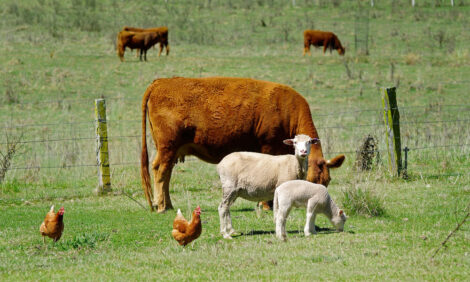



OIE Boss Calls for End to Brazilian Beef Bans
BRAZIL - The director general of the World Organization for Animal Health (OIE) has called on countries banning imports of beef from Brazil, following the discovery of an atypical case of BSE last month, to lift the restrictions as soon as possible.Bernard Vallat said that the action some copuntries had taken was completely unjustified, according to the Brazilian beef export organisation ABIEC.
Last week, the Secretary of Foreign Trade of Brazil said that the country was considering appealing to the World Trade Organization (WTO) if the countries that imposed restrictions on Brazilian products did not lift the embargoes.
Since the announcement of the atypical case, 10 countries have imposed restrictions on beef from Brazil or their derivatives, including Japan, Saudi Arabia, South Africa, South Korea, China and Taiwan, whi have adopted total embargo and Jordan and Lebanon who are blocking products from Paraná.
Peru suspended imports for three months while Chile put a block on meat and bonemeal.
Saudi Arabia has returned to buying imports of livestock.
The alarm was raised after the OIE released information from the Brazilian the Ministry of Agriculture that the tests performed with a dead cow in Paraná in 2010 seemed to indicate the existence of the causative agent of Bovine Spongiform Encephalopathy (BSE). However, the cow did not develop the disease and had a form that was considered atypical.
Mr Vallat, said countries have the right to adopt bans as a temporary emergency response to outbreaks of diseases, but he said there was no reason for such restrictions in this case.
"A case in a population of 200 million head of cattle does not justify the classification change," Mr Vallat said.
Brazil is considered a negligible risk for BSE, the safest among the three categories.
"According to the standards of the OIE, they should end the embargo as soon as possible," Mr Vallat said.
Guilherme Marques,delegate of Brazil to the World Organization for Animal Health fully agreed with Mr Vallat's statement assuring that Brazilian beef remains safe.
"There is no reason to change the classification of Brazil from the current level of insignificant risk."
"The Brazilian beef sector is in full compliance with all the recommendations outlined in the Health Organisation code," concluded Mr Marques.
TheCattleSite News Desk


